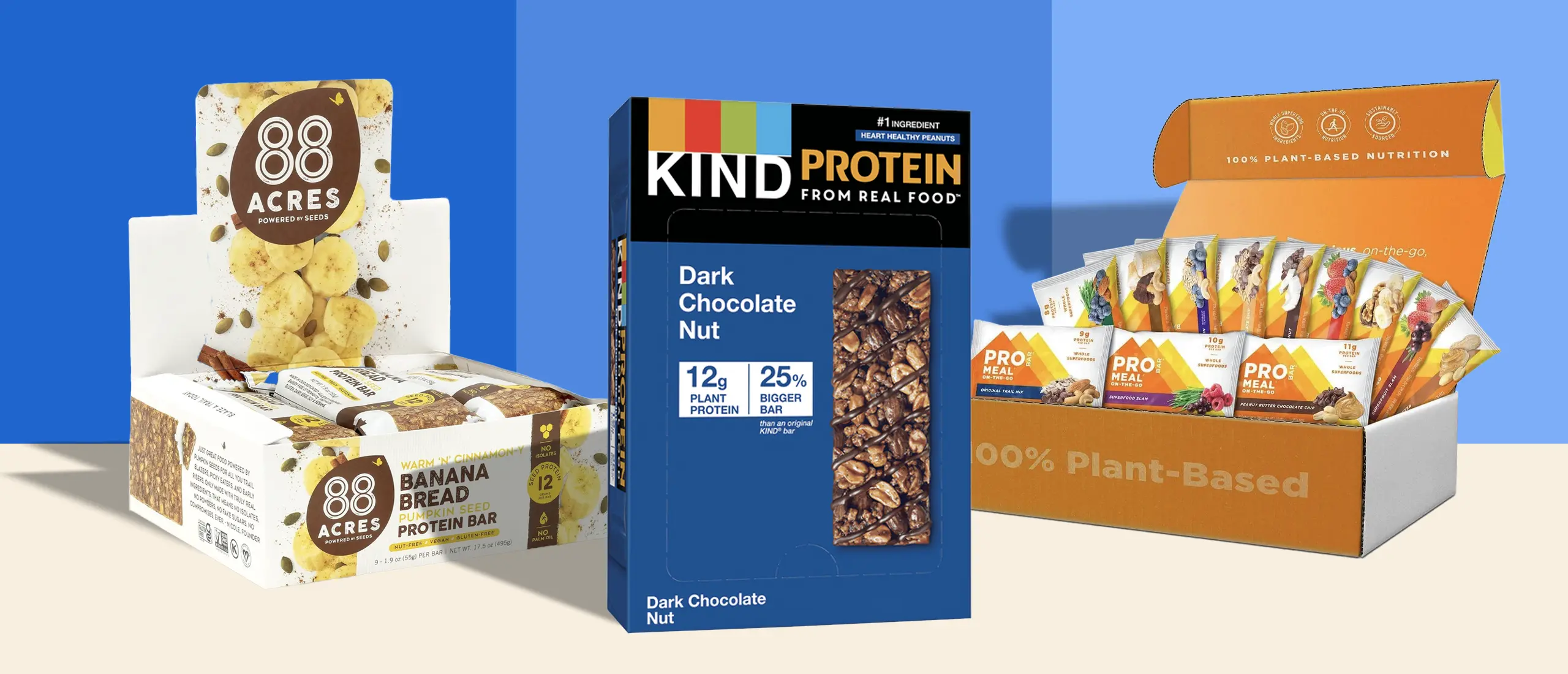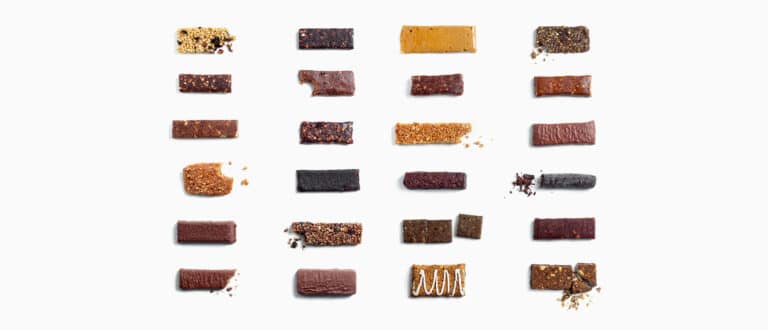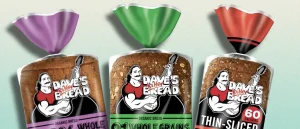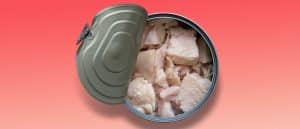The 10 Best Protein Bars for Weight Loss, Ranked by a Dietitian
- By Rebekah Harding
- April 10, 2024
Our product recommendations are selected by editors, tested first-hand, or expert-approved. We may earn a commission through links on our site.
F
or many, the trickiest part of starting a weight loss journey is overhauling the personal snack stash. Luckily, there’s an option that can fuel your gym gains and keep you feeling full for longer: protein bars.
But not all bars are created equal, according to Megan Hilbert, M.S., R.D.N. Here’s how to choose the best protein bars for weight loss during your next trip to the grocery store. Plus, answers to your burning questions like: Do protein bars make you fat? and Can a protein bar actually replace a meal?
About the Expert:
Megan Hilbert, M.S., R.D.N., is a registered dietitian with Top Nutrition Coaching. She specializes in gut health nutrition, IBS, intuitive eating, and the gut-brain axis.
What Do the Best Protein Bars for Weight Loss Have in Common?
The protein load matches your goals
“Ideally, protein bars should contain 7 to 20 grams of protein,” Hilbert says. “But the amount of protein you want is going to be dependent on your goals and what other foods you choose to consume with these bars.”
According to Hilbert, bars with less protein are often made with less processed protein isolates and can be just as healthy for weight loss goals (1).
Lower protein bars are great if you’re eating them alongside other meals, because you’ll be taking in less calories and getting more nutrition from whole food sources, she says. “But for those looking to use bars to substitute a meal, higher amounts of protein are ideal.”
They contain the right kind of fat
Not all fat is bad. In fact, incorporating healthy fats into your diet can actually be a good thing.
“I like to advise clients to look at saturated fat intake and keep it minimal (less than 2 to 3 grams per serving),” says Hilbert. “You want to look for protein bars with higher amounts of mono and polyunsaturated fats.”
Monounsaturated fats are found in foods like avocados, certain nuts like almonds, pistachios, and pecans, and olive oil. These fats help lower bad LDL cholesterol while boosting the good stuff (HDL) (2). Plus, they are heart healthy and can reduce your risk of heart attack or stroke.
On the other hand, foods like walnuts and flax and chia seeds contain polyunsaturated fat. This type of healthy fats contain essential omega-3 and omega-6 fatty acids, which your body can’t produce on its own (3). And they are crucial for brain function and reducing inflammation (4).
They contain fiber
“Try to find protein bars with some fiber content, ideally at least 3 grams per serving,” says Hilbert. “Fiber helps satiate us and contributes to a healthy microbiome, both of which are incredibly important for weight loss.”
Can a Protein Bar Replace a Meal?
Not for most people. Even the most nutrient-dense protein bars don’t provide enough calories to be rightfully called a meal, says Hilbert. For this reason, it’s recommended that you pair a protein bar with other healthy snacks to bridge that gap.
“I typically recommend pairing protein bars with other whole foods like fruits, veggies, nuts, fermented dairy like yogurt or kefir, or even other protein sources like low-sodium turkey jerky if they want to add in more nutrition to ‘make it a meal,'” says Hilbert.
Instead of eating protein bars to replace meals, they shine as after workout snacks or as a quick breakfast, notes Hilbert.
“If you struggle with breakfast intake, like a lot of my clients, protein bars can be a great way to start the day over completely skipping breakfast—unless your goal is intentionally fasting,” she says.
Wait, do protein bars make you fat?
Protein bars themselves don’t actually make you gain—or lose—weight.
It’s a valid concern, especially if you’re making diet changes to help you lose fat and build muscle. It matters how you incorporate them into your overall diet.
Protein bars can be pretty calorie dense. If you’re chomping down on them like candy bars, the excess calories can cause you to pack on a few extra pounds.
But if you’re tracking your macros and making sure you’re eating a healthy amount of calories daily, incorporating protein bars into your snack rotation can be a great way to get more muscle-supporting protein—which is a good thing for your gains.
The 10 Best Protein Bars for Weight Loss, Ranked
Here are ten protein bars for weight loss that are packed with nutrients, and of course, plenty of protein—all recommended by a registered dietitian nutritionist. Plus, we tried three ourselves to weigh in on taste and texture.
References
1. Gorissen, et al (2018). Protein content and amino acid composition of commercially available plant-based protein isolates.
2. DiNicolantonio (2022). Monounsaturated Fat vs Saturated Fat: Effects on Cardio-Metabolic Health and Obesity
3. Michalak, et al (2016). Polyunsaturated Fatty Acids and Their Derivatives: Therapeutic Value for Inflammatory, Functional Gastrointestinal Disorders, and Colorectal Cancer.
4. Stachowicz, et al (2023). The role of polyunsaturated fatty acids in neuronal signaling in depression and cognitive processes.
5. Goncalves, et al (2023). Composition of Nuts and Their Potential Health Benefits—An Overview.
6. Food and Drug Administration (FDA). How much (dietary) fiber should I eat?
7. MedlinePlus. Glycemic index and diabetes.












